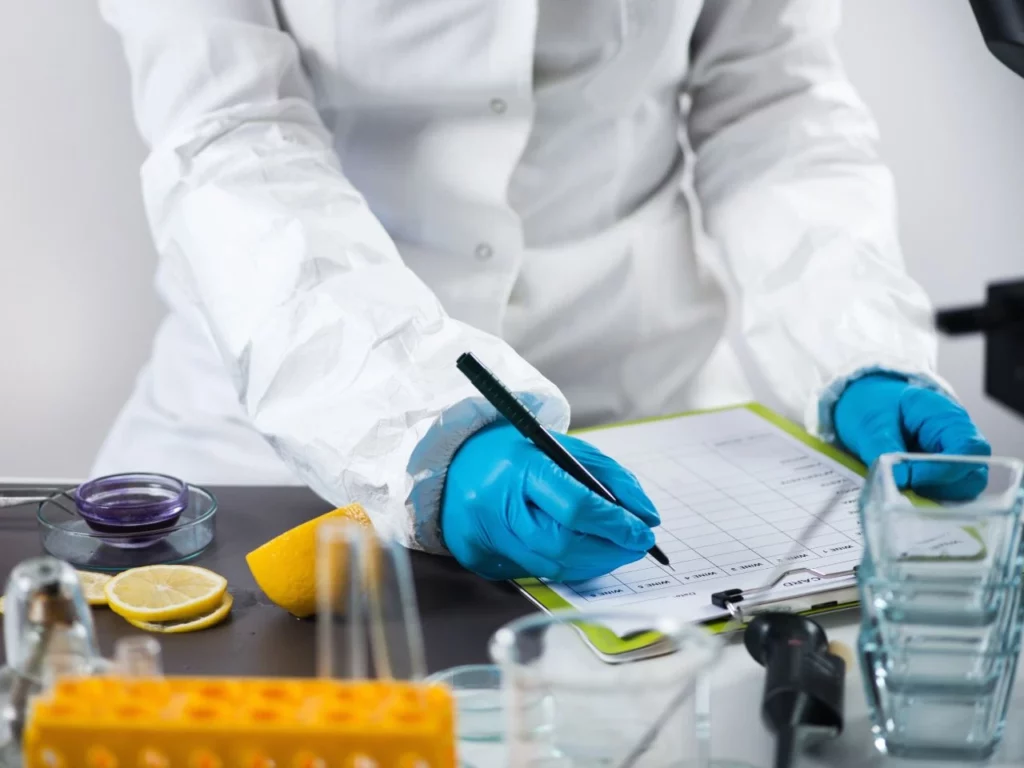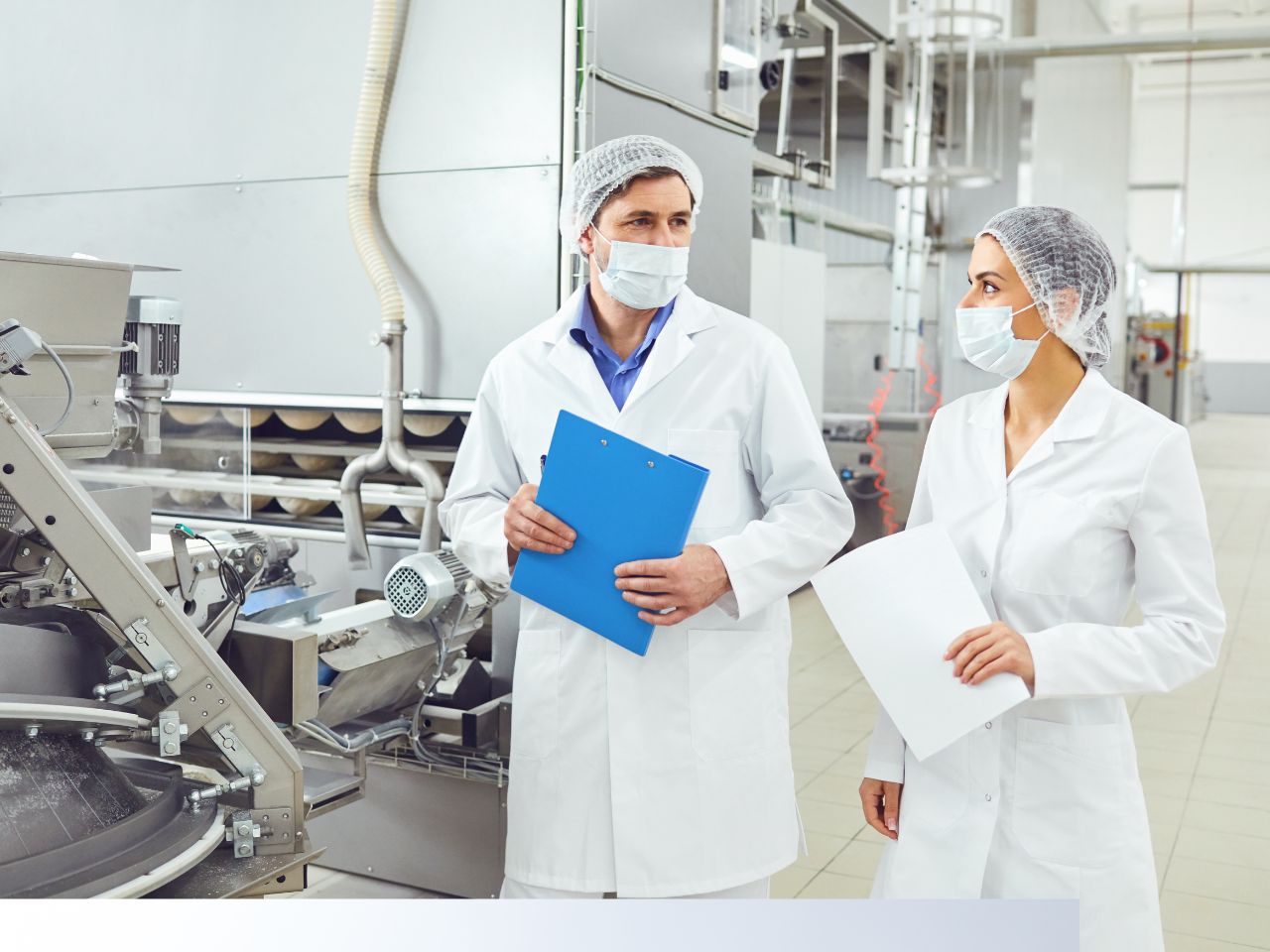In the pursuit of GMP compliance excellence within the manufacturing industry, attaining GMP (Good Manufacturing Practices) certification is a crucial step because it demonstrates your commitment to quality and safety, ensuring that your manufacturing facility operates at the highest standards. Getting GMP certified isn’t as easy as it sounds, but by understanding the process and learning how to meet the regulatory requirements, a business can easily become a GMP-compliant manufacturing facility.
At Cobblestone, we’re here to guide you through what it means to become GMP or cGMP (current good manufacturing practices) compliant. We’ll detail what you need to know and what it means for a manufacturing facility to be GMP-compliant or cGMP-compliant. If becoming a leader in your industry requires this, we have a comprehensive curriculum of courses available for you to explore, designed by industry experts to ensure you understand the complete GMP process. Completing a Cobblestone course can assist in understanding the rigorous GMP certification process and what it encompasses.
What Does It Mean for a Manufacturing Facility to Be GMP or cGMP-Compliant?
GMP, or ‘good manufacturing practices’, refers to a set of standards, while ‘current good manufacturing practices’ (cGMP) refers to the updated version of these standards. These standards, established by the Food and Drug Administration (FDA), are particularly crucial in the pharmaceutical and food industries.
What is a GMP facility? A GMP-compliant facility is a manufacturing facility that has taken the steps required according to FDA regulations and quality specifications to meet industry standards.
To become a GMP facility, you must consistently manufacture high-quality, safe, reliable, and ethical products that routinely meet FDA mandates surrounding industry-specific good manufacturing practices. Once you have taken the steps and passed the GMP third-party auditing process, you will be GMP compliant and a GMP facility.

How does GMP Certification Differ in Different Manufacturing Industries?
Many industries, including food and beverages, dietary supplements, pharmaceuticals, medical devices, and more, use GMP certification.
Although each of these manufacturing industries has specific requirements, standards, and regulations that it must adhere to, the fundamental principles of GMP remain largely the same. Let’s look at how it varies in a few example industries below:
-
- GMP certification in the medical and pharmaceutical industry: In the medical and pharmaceutical industry, GMP certification signifies a company’s commitment to ensuring consumers receive safe and top-notch medication. It encompasses various facets of pharmaceutical production, such as process validation, testing of raw materials, adhering to special packaging and labeling standards, and maintaining cleanliness in manufacturing facilities.
-
- GMP certification in the food and beverage industry: In the food and beverage industry, businesses that have achieved GMP certification and compliance are proving to clients that they are taking special precautions to ensure their food and beverage products are safe and of high quality. The GMP standards in this industry cover hygiene, sanitation, allergen control, traceability, and pest control. This certification is incredibly important for businesses with high risks of adulteration or contamination in the food or beverage industries.
-
- GMP certification in the cosmetics industry: In the cosmetics industry, achieving GMP certification proves that beauty companies manufacture cosmetics and skincare products that comply with quality standards. Typically, GMP standards in the cosmetics industry cover ingredient sourcing, labeling, formulation, and packaging. Through GMP compliance, cosmetics companies can establish confidence in the effectiveness and safety of their products.
How do you Prepare your Company to Undergo a GMP Inspection?
Now that you know what it means for a manufacturing facility to be GMP-compliant, you’re likely wondering what the process is like to get GMP certification. Below, we’ve detailed the steps you should take if you want to become a GMP-compliant manufacturing facility.
-
- Put together a GMP quality team: If you want to become GMP compliant, you need to build a GMP quality team that can oversee the processes you will implement to achieve GMP certification. Usually, the best way to do this is to have a cross-functional team with members from different departments. For example, if you operate a medical manufacturing facility, you can have employees from production, labeling, and sourcing on the same team. These team members should be able to review and implement GMP requirements.
-
- Assess your business’s current operations: To determine how much of your existing processes you need to change to become GMP compliant, you need to assess the current manufacturing quality text. By doing this, you can identify and address any deficiencies that could lead to failing a GMP certification audit.
-
- Evaluate your current validation processes: Across industries, GMP regulations require that businesses show their validation processes lead to expected results more often than not. This means that you need to prove process validation of various operating processes, like sanitation, computer systems, and analytical methodologies.
-
- Undertake surprise internal audits: Before you undergo the real thing, it’s a good idea to practice with surprise internal audits. These audits can help you determine any areas that need improvement to ensure the real audit leads to GMP compliance. Just be sure to share the results of the audits with every department related to the manufacturing facility so that no knowledge gaps occur.
-
- Monitor performances: You need to monitor equipment, instruments, processes, and staff performances continuously to ensure GMP standards are being upheld. It’s easy for a company to lose its GMP compliance status by forgetting to monitor these integral operational elements.
-
- Invest in Training: Training for GMP compliance can be difficult if you’re unsure of where to start. Cobblestone’s GMP courses are comprehensive, with expert industry insights and easily digestible and understandable content that will prepare you and your employees for a GMP audit.
This process can take anywhere between three and 12 months to complete, no matter the industry your business falls within. However, investing in a GMP certification or accredited course can get you up to speed faster and help streamline and quicken the process. So, consider this when deciding if GMP compliance is in your business’s future.

What Are the Common Challenges Businesses Face When Trying to Become GMP-Compliant?
Getting GMP certified can be a daunting task because of various common challenges faced by manufacturers. These include a lack of awareness about GMP guidelines and their benefits, resource constraints hindering necessary investments, resistance to organizational change required for compliance, the complexity of regulatory requirements, and the ongoing commitment needed to maintain compliance.
Overcoming these challenges requires proactive measures, such as educating oneself and the team, careful budget planning, effective change management strategies, staying updated with regulations, and ensuring continuous improvement efforts. By addressing these challenges head-on and seeking expert guidance through companies like Cobblestone, manufacturers can successfully navigate the path to GMP certification.
Take the First Step Towards Becoming GMP-Compliant by Undertaking A Course With Cobblestone
Now you know more about what it means for a manufacturing facility to be cGMP or GMP compliant, how it can differ from industry to industry, how to prepare for GMP certification, and the common challenges you might come across. If the path still seems daunting, it might be time to consider a Cobblestone GMP certification course.
At Cobblestone, we understand the pulse of the industry and are dedicated to guiding you and your team through the multifaceted process of achieving GMP compliance. By enrolling in our courses, you’ll learn the key aspects of the FDA GMP requirements concerning record-keeping, labeling, equipment handling, documentation, management, and operating procedures. With this information, you can ensure GMP compliance by minimizing errors and manufacturing safe, reliable products. Get in touch with us now to find out more about the ways we can support your organization’s training needs.
